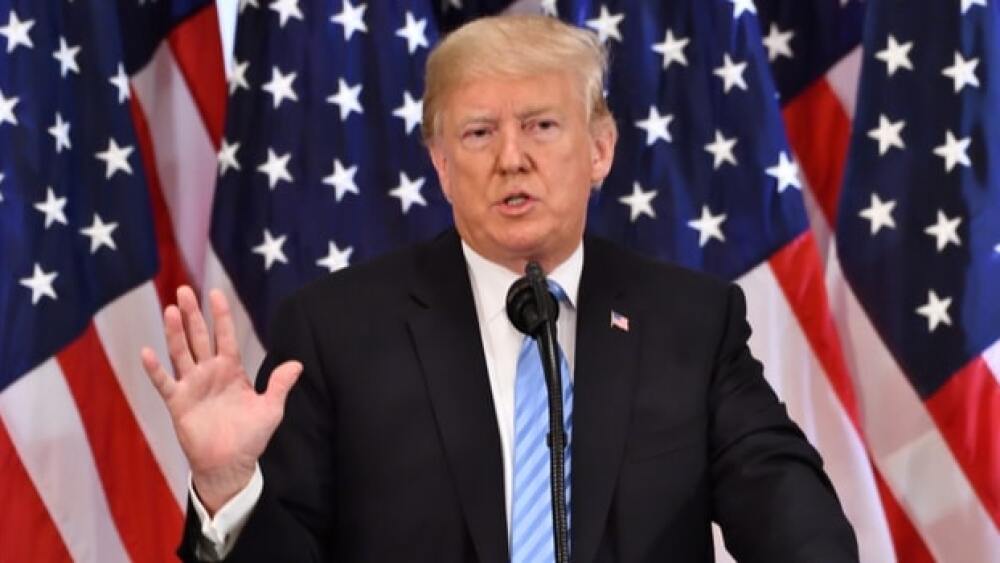Pharmaceutical Research and Manufacturers of America (PhRMA), alongside other biotech industry trade organizations, filed a lawsuit Friday against the Trump administration’s new rules for lowering drug prices.
Evan El-Amin/Shutterstock
Pharmaceutical Research and Manufacturers of America (PhRMA), alongside other biotech industry trade organizations, filed a lawsuit Friday against the Trump administration’s new rules for lowering drug prices. One of the claims in the lawsuit is that the new reimbursement rules set forth by the administration are illegal, as these rules were announced prior to collecting feedback from key stakeholders.
The Trump administration’s finalized Most Favored Nation (MFN) rule, announced last month, ties payments for select drugs made by Medicare to the lowest prices paid by other wealthy countries. The new reimbursement rule, which is set to take effect on January 1, affects 50 drugs that encompass around 73% of Medicare Part B drug spending.
According to the Centers for Medicare & Medicaid Services’ Office of the Actuary, the MPN could provide cost savings of up to $85 billion to taxpayers and patients over the next seven years.
But an analysis from consulting firm Avalere Health suggests the new rule will lead to few reductions in out-of-pocket costs for Medicare fee-for-service beneficiaries, considering approximately 94% of Part B Medicare beneficiaries already receive supplemental coverage. According to the Avalere study, less than 1% of Medicare beneficiaries will have reduced out-of-pocket costs under the MPN rule.
PhRMA, in partnership with the Association of Community Cancer Centers (ACCC), the Global Colon Cancer Association (GCCA) and National Infusion Center Association, claim in their lawsuit that the final ruling on the MPN “exceeds the statutory authority provided to the Centers for Medicare and Medicaid Services, raises serious constitutional questions and improperly fails to follow required rulemaking procedures.”
James C. Stansel, PhRMA’s Executive Vice President and General Counsel, said in a statement that through the rollout of the nationwide mandate, the Trump administration is “rewriting the Medicare statue” and circumventing Congress by ignoring the roles of the legislative and executive branches.
“By proceeding with an interim final rule, the administration has also deprived the American public of their right to provide input on these drastic changes before they are implemented,” said Stansel. “Alarmingly, they have used COVID-19 as a baseless pretext for skipping normal rulemaking, having delayed the issuance of a proposed rule for nearly two years. The MFN Interim Final Rule should be stopped from moving forward immediately before it can cause irreparable harm.”
Christian Downs, Executive Director of the ACCC, added that the MPN is “impractical” and “unworkable” and doesn’t address the reforms needed to protect Medicare beneficiaries. Downs noted that the MPN “will have a disproportionate impact on smaller hospitals and practices which are already struggling due to the COVID-19 pandemic and force them to curtail services and access to ensure their viability.”
In addition, GCCA Executive Director Andrew Spiegel suggests the MPN will “stunt future investment in medical innovation. “It is therefore distressing that the administration would impose this harmful policy in this current economic climate,” said Spiegel. “CMS must reconsider the MFN rule, and instead focus on patient-centered reforms that improve costs without limiting access to essential care.”
While the U.S. biopharma industry suggests high drug prices are necessary to support innovation, prices have significantly increased over the past 10 years. A study from the University of Pittsburgh Center for Pharmaceutical Policy and Prescribing found that list prices for 600 brand-name drugs rose 159% between 2007 and 2018. After factoring in discounts, net prices had increased by 60%, which is more than three times the rate of inflation for that time period.
The MPN represents one of President Trump’s attempts to deliver on his campaign promises before he leaves office. Similarly, Presumptive President-elect Joe Biden has proposed allowing the Department of Health and Huma Services to negotiate with pharmaceutical companies for lower medication prices and to establish a reference pricing model based on international prices for drug manufacturers that have little competition.





